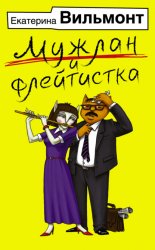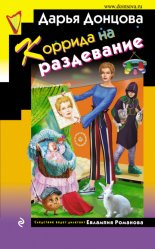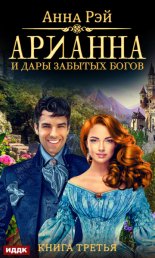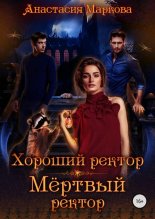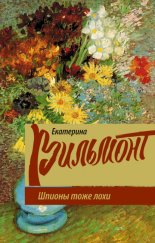The Murder of Roger Ackroyd / Óáèéñòâî Ðîäæåðà Ýêðîéäà Êðèñòè Àãàòà
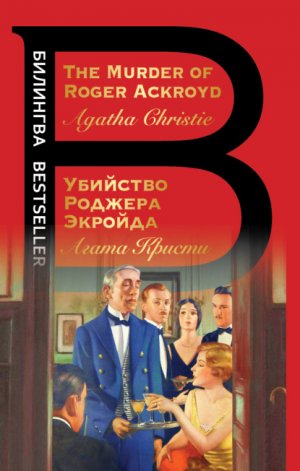
‘Race meetings? No, I don’t think he’s interested in racing.’
Poirot nodded and seemed to lose interest. He glanced slowly round the study.
‘I have seen, I think, all that there is to be seen here.’
I, too, looked round.
‘If those walls could speak,’ I murmured.
Poirot shook his head.
‘A tongue is not enough,’ he said. ‘They would have to have also eyes and ears. But do not be too sure that these dead things’-he touched the top of the bookcase as he spoke-‘are always dumb. To me they speak sometimes- chairs, tables – they have their message!’
He turned away towards the door.
‘What message?’ I cried. ‘What have they said to you today?’
He looked over his shoulder and raised one eyebrow quizzically.
‘An opened window,’ he said. ‘A locked door. A chair that apparently moved itself. To all three I say “Why?” and I find no answer.’
He shook his head, puffed out his chest, and stood blinking at us. He looked ridiculously full of his own importance. It crossed my mind to wonder whether he was really any good as a detective. had his big reputation been built up on a series of lucky chances?
I think the same thought must have occurred to colonel Melrose, for he frowned.
‘Anything more you want to see, M. Poirot?’ he inquired brusquely.
‘You would perhaps be so kind as to show me the silver table from which the weapon was taken? After that, I will trespass on your kindness no longer.’
We went to the drawing-room, but on the way the constable waylaid the colonel, and after a muttered conversation the latter excused himself and left us together. I showed Poirot the silver table, and after raising the lid once or twice and letting it fall, he pushed open the window and stepped out on the terrace. I followed him.
Inspector Raglan had just turned the corner of the house, and was coming towards us. His face looked grim and satisfied.
‘So there you are, M. Poirot,’ he said. ‘Well, this isn’t going to be much of a case. I’m sorry, too. A nice enough young fellow gone wrong.’
Poirot’s face fell, and he spoke very mildly.
‘I’m afraid I shall not be able to be of much aid to you, then?’
‘Next time, perhaps,’ said the inspector soothingly. ‘Though we don’t have murders every day in this quiet little corner of the world.’
Poirot’s gaze took on an admiring quality.
‘You have been of a marvellous promptness,’ he observed. ‘How exactly did you go to work, if I may ask?’ ‘certainly,’ said the inspector.
‘To begin with – method. That’s what I always say – method!’
‘Ah!’ cried the other. ‘That, too, is my watchword. Method, order, and the little grey cells.’
‘The cells?’ said the inspector, staring.
‘The little grey cells of the brain,’ explained the Belgian.
‘Oh, of course; well, we all use them, I suppose.’
‘In a greater or lesser degree,’ murmured Poirot. ‘And there are, too, differences in quality. Then there is the psychology of a crime. One must study that.’
‘Ah!’ said the inspector, ‘you’ve been bitten with all this psycho-analysis stuff? Now, I’m a plain man-’
‘Mrs Raglan would not agree, I am sure, to that,’ said Poirot, making him a little bow.
Inspector Raglan, a little taken aback, bowed.
‘You don’t understand,’ he said, grinning broadly. ‘Lord, what a lot of difference language makes. I’m telling you how I set to work. first of all, method. Mr Ackroyd was last seen alive at a quarter to ten by his niece, Miss Flora Ackroyd. That’s fact number one, isn’t it?’
‘If you say so.’
‘Well, it is. At half-past ten, the doctor here says that Mr Ackroyd had been dead at least half an hour. you stick to that, doctor?’
‘Certainly,’ I said. ‘Half an hour or longer.’
‘Very good. That gives us exactly a quarter of an hour in which the crime must have been committed. I make a list of everyone in the house, and work through it, setting down opposite their names where they were and what they were doing between the hour of 9.45 and 10 p. m.’
He handed a sheet of paper to Poirot. I read it over his shoulder. It ran as follows, written in a neat script:
Major Blunt – In billiard room with Mr Raymond. (Latter confirms.)
Mr Raymond – Billiard room. (See above.)
Mrs Ackroyd-9.45 watching billiard match. Went up to bed 9.55. (Raymond and Blunt watched her up staircase.)
Miss Ackroyd – Went straight from her uncle’s room upstairs. (Confirmed by Parker, also housemaid, Elsie Dale.)
Servants:
Parker – Went straight to butler’s pantry. (Confirmed by housekeeper, Miss Russell, who came down to speak to him about something at 9.47, and remained at least ten minutes.)
Miss Russell – As above. Spoke to housemaid, Elsie Dale, upstairs at 9.45.
Ursula Bourne – (parlourmaid) – In her own room until 9.55. Then in Servants’ Hall.
Mrs Cooper – (cook) – In Servants’ Hall.
Gladys Jones – (second housemaid) – In Servants’ Hall.
Elsie Dale – Upstairs in bedroom. Seen there by Miss Russell and Miss Flora Ackroyd.
Mary Thripp (kitchenmaid) – Servants’ Hall.
‘The cook has been here seven years, the parlourmaid eighteen months, and Parker just over a year. The others are new. except for something fishy about Parker, they all seem quite all right.’
‘A very complete list,’ said Poirot, handing it back to him. ‘I am quite sure that Parker did not do the murder,’ he added gravely.
‘So is my sister,’ I struck in. ‘And she’s usually right.’
Nobody paid any attention to my interpolation.
‘That disposes pretty effectually of the household,’ continued the inspector. ‘Now we come to a very grave point. The woman at the lodge – Mary Black – was pulling the curtains last night when she saw ralph Paton turn in at the gate and go up towards the house.’
‘She is sure of that?’ I asked sharply.
‘Quite sure. She knows him well by sight. he went past very quickly and turned off by the path to the right, which is a short cut to the terrace.’
‘And what time was that?’ asked Poirot, who had sat with an immovable face.
‘Exactly twenty-five minutes past nine,’ said the inspector gravely.
There was a silence. Then the inspector spoke again.
‘It’s all clear enough. It fits in without a flaw. At twentyfive minutes past nine, captain Paton is seen passing the lodge; at nine-thirty or thereabouts, Mr geoffrey raymond hears someone in here asking for money and Mr Ackroyd refusing. What happens next? captain Paton leaves the same way – through the window. he walks along the terrace, angry and baffled. he comes to the open drawing-room window. Say it’s now a quarter to ten. Miss flora Ackroyd is saying goodnight to her uncle. Major Blunt, Mr raymond, and Mrs Ackroyd are in the billiard room. The drawingroom is empty. he steals in, takes the dagger from the silver table, and returns to the study window. he slips off his shoes, climbs in, and – well, I don’t need to go into details. Then he slips out again and goes off. hadn’t the nerve to go back to the inn. he makes for the station, rings up from there-’
‘Why?’ said Poirot softly.
I jumped at the interruption. The little man was leaning forward. his eyes shone with a queer green light. for a moment Inspector raglan was taken aback by the question.
‘It’s difficult to say exactly why he did that,’ he said at last. ‘But murderers do funny things. you’d know that if you were in the police force. The cleverest of them make stupid mistakes sometimes. But come along and I’ll show you those footprints.’
We followed him round the corner of the terrace to the study window. At a word from Raglan a police constable produced the shoes which had been obtained from the local inn. The inspector laid them over the marks.
‘They’re the same,’ he said confidently. ‘That is to say, they’re not the same pair that actually made these prints. he went away in those. This is a pair just like them, but older – see how the studs are worn down?’
‘Surely a great many people wear shoes with rubber studs in them?’ asked Poirot.
‘That’s so, of course,’ said the inspector. ‘I shouldn’t put so much stress on the footmarks if it wasn’t for everything else.’
‘A very foolish young man, captain Ralph Paton,’ said Poirot thoughtfully. ‘To leave so much evidence of his presence.’
‘Ah! well,’ said the inspector, ‘it was a dry, fine night, you know. he left no prints on the terrace or on the gravelled path. But, unluckily for him, a spring must have welled up just lately at the end of the path from the drive. See here.’ A small gravelled path joined the terrace a few feet away. In one spot, a few yards from its termination, the ground was wet and boggy. Crossing this wet place there were again the marks of footsteps, and amongst them the shoes with rubber studs.
Poirot followed the path on a little way, the inspector by his side.
‘You noticed the women’s footprints?’ he said suddenly.
The inspector laughed.
‘Naturally. But several different women have walked this way – and men as well. It’s a regular short cut to the house, you see. It would be impossible to sort out all the footsteps. After all, it’s the ones on the window-sill that are really important.’
Poirot nodded.
‘It’s no good going farther,’ said the inspector, as we came in view of the drive. ‘It’s all gravelled again here, and hard as it can be.’
Again Poirot nodded, but his eyes were fixed on a small garden house – a kind of superior summer-house. It was a little to the left of the path ahead of us, and a gravelled walk ran up to it. Poirot lingered about until the inspector had gone back towards the house. Then he looked at me.
‘You must have indeed been sent from the good god to replace my friend hastings,’ he said, with a twinkle. ‘I observe that you do not quit my side. how say you, doctor Sheppard, shall we investigate that summer-house? It interests me.’
He went up to the door and opened it. Inside, the place was almost dark. There were one or two rustic seats, a croquet set, and some folded deck-chairs.
I was startled to observe my new friend. he had dropped to his hands and knees and was crawling about the floor. every now and then he shook his head as though not satisfied. finally, he sat back on his heels.
‘Nothing,’ he murmured. ‘Well, perhaps it was not to be expected. But it would have meant so much-’
He broke off, stiffening all over. Then he stretched out his hand to one of the rustic chairs. he detached something from one side of it.
‘What is it?’ I cried. ‘What have you found?’
He smiled, unclosing his hand so that I should see what lay in the palm of it. A scrap of stiff white cambric.
I took it from him, looked at it curiously, and then handed it back.
‘What do you make of it, eh, my friend?’ he asked, eyeing me keenly.
‘A scrap torn from a handkerchief,’ I suggested, shrugging my shoulders. He made another dart and picked up a small quill – a goose quill by the look of it.
‘And that?’ he cried triumphantly. ‘What do you make of that?’
I only stared. he slipped the quill into his pocket, and looked again at the scrap of white stuff.
‘A fragment of a handkerchief?’ he mused. ‘Perhaps you are right. But remember this – a good laundry does not starch a handkerchief.’
He nodded at me triumphantly, then he put away the scrap carefully in his pocket-book.
Chapter 9
The Goldfish Pond
We walked back to the house together. There was no sign of the inspector. Poirot paused on the terrace and stood with his back to the house, slowly turning his head from side to side.
‘Une belle proprit,’ he said at last appreciatively. ‘Who inherits it?’
His words gave me almost a shock. It is an odd thing, but until that moment the question of inheritance had never come into my head. Poirot watched me keenly.
‘It is a new idea to you, that,’ he said at last. ‘you had not thought of it before – eh?’
‘No,’ I said truthfully. ‘I wish I had.’
He looked at me again curiously.
‘I wonder just what you mean by that,’ he said thoughtfully. ‘oh! no,’ as I was about to speak. ‘Inutile! you would not tell me your real thought.’
‘Everyone has something to hide,’ I quoted, smiling.
‘Exactly.’
‘You still believe that?’
‘More than ever, my friend. But it is not easy to hide things from Hercule Poirot. He has a knack of finding out.’
He descended the steps of the dutch garden as he spoke.
‘Let us walk a little,’ he said over his shoulder. ‘The air is pleasant today.’
I followed him. he led me down a path to the left enclosed in yew hedges. A walk led down the middle, bordered each side with formal flower beds, and at the end was a round paved recess with a seat and a pond of goldfish. Instead of pursuing the path to the end, Poirot took another which wound up the side of a wooded slope. In one spot the trees had been cleared away, and a seat had been put. Sitting there one had a splendid view over the countryside, and one looked right down on the paved recess and the goldfish pond.
‘England is very beautiful,’ said Poirot, his eyes straying over the prospect. Then he smiled. ‘And so are english girls,’ he said in a lower voice. ‘Hush, my friend, and look at the pretty picture below us.’
It was then that I saw Flora. She was moving along the path we had just left and she was humming a little snatch of song. Her step was more dancing than walking, and, in spite of her black dress, there was nothing but joy in her whole attitude. She gave a sudden pirouette on her toes, and her black draperies swung out. At the same time she flung her head back and laughed outright.
As she did so a man stepped out from the trees. It was Hector Blunt.
The girl started. her expression changed a little.
‘How you startled me – I didn’t see you.’
Blunt said nothing, but stood looking at her for a minute or two in silence.
‘What I like about you,’ said Flora, with a touch of malice, ‘is your cheery conversation.’
I fancy that at that Blunt reddened under his tan. His voice, when he spoke, sounded different – it had a curious sort of humility in it.
‘Never was much of a fellow for talking. Not even when I was young.’
‘That was a very long time ago, I suppose,’ said Flora gravely.
I caught the undercurrent of laughter in her voice, but I don’t think Blunt did.
‘Yes,’ he said simply, ‘it was.’
‘How does it feel to be Methuselah?’ asked Flora.
This time the laughter was more apparent, but Blunt was following out an idea of his own.
‘Remember the Johnny who sold his soul to the devil? In return for being made young again? There’s an opera about it.’
‘Faust, you mean?’
‘That’s the beggar. Rum story. Some of us would do it if we could.’
‘Anyone would think you were creaking at the joints to hear you talk,’ cried Flora, half vexed, half amused.
Blunt said nothing for a minute or two. Then he looked away from flora into the middle distance and observed to an adjacent tree trunk that it was about time he got back to Africa.
‘Are you going on another expedition – shooting things?’
‘Expect so. usually do, you know – shoot things, I mean.’
‘You shot that head in the hall, didn’t you?’
Blunt nodded. Then he jerked out, going rather red as he did so:
‘Care for some decent skins any time? If so, I could get ’em for you.’
‘Oh! please do,’ cried Flora. ‘Will you really? You won’t forget?’
‘I shan’t forget,’ said Hector Blunt. he added, in a sudden burst of communicativeness: ‘Time I went. I’m no good in this sort of life. haven’t got the manners for it. I’m a rough fellow, no use in society. Never remember the things one’s expected to say. Yes, time I went.’
‘But you’re not going at once,’ cried Flora. ‘No – not while we’re in all this trouble. oh! please. If you go-’
She turned away a little.
‘You want me to stay?’ asked Blunt. he spoke deliberately but quite simply.
‘We all-’
‘I meant you personally,’ said Blunt, with directness.
Flora turned slowly back again and met his eyes.
‘I want you to stay,’ she said, ‘if – if that makes any difference.’
‘It makes all the difference,’ said Blunt.
There was a moment’s silence. They sat down on the stone seat by the goldfish pond. It seemed as though neither of them knew quite what to say next.
‘It – it’s such a lovely morning,’ said Flora at last. ‘you know, I can’t help feeling happy, in spite – in spite of everything. That’s awful, I suppose?’
‘Quite natural,’ said Blunt. ‘Never saw your uncle until two years ago, did you? can’t be expected to grieve very much. Much better to have no humbug about it.’
‘There’s something awfully consoling about you,’ said Flora. ‘You make things seem so simple.’
‘Things are simple as a rule,’ said the big-game hunter.
‘Not always,’ said Flora.
Her voice had lowered itself, and I saw Blunt turn and look at her, bringing his eyes back from (apparently) the coast of Africa to do so. He evidently put his own construction on her change of tone, for he said, after a minute or two, in rather an abrupt manner:
‘I say, you know, you mustn’t worry. About that young chap, I mean. Inspector’s an ass. everyboy knows – utterly absurd to think he could have done it. Man from outside. Burglar chap. That’s the only possible solution.’
Flora turned to look at him.
‘You really think so?’
‘Don’t you?’ said Blunt quickly.
‘I – oh, yes, of course.’
Another silence, and then Flora burst out:
‘I’m – I’ll tell you why I felt so happy this morning. however heartless you think me, I’d rather tell you. It’s because the lawyer has been – Mr Hammond. He told us about the will. Uncle Roger has left me twenty thousand pounds. Think of it – twenty thousand beautiful pounds.’
Blunt looked surprised.
‘Does it mean so much to you?’
‘Mean much to me? Why, it’s everything. freedom – life- no more scheming and scraping and lying-’
‘Lying?’ said Blunt, sharply interrupting.
Flora seemed taken aback for a minute.
‘You know what I mean,’ she said uncertainly. ‘Pretending to be thankful for all the nasty cast-off things rich relations give you. Last year’s coat and skirts and hats.’
‘Don’t know much about ladies’ clothes; should have said you were always very well turned out.’
‘It cost me something, though,’ said Flora in a low voice. ‘Don’t let’s talk of horrid things. I’m so happy. I’m free. free to do what I like. free not to-’
She stopped suddenly.
‘Not to what?’ asked Blunt quickly.
‘I forget now. Nothing important.’
Blunt had a stick in his hand, and he thrust it into the pond, poking at something.
‘What are you doing, Major Blunt?’
‘There’s something bright down there. Wondered what it was – looks like a gold brooch. Now I’ve stirred up the mud and it’s gone.’
‘Perhaps it’s a crown,’ suggested Flora. ‘Like the one Melisande saw in the water.’
‘Melisande,’ said Blunt reflectively-‘she’s in an opera, isn’t she?’
‘Yes, you seem to know a lot about operas.’
‘People take me sometimes,’ said Blunt sadly. ‘Funny idea of pleasure – worse racket than the natives make with their tom-toms.’
Flora laughed.
‘I remember Melisande,’ continued Blunt, ‘married an old chap old enough to be her father.’
He threw a small piece of flint into the goldfish pond. Then, with a change of manner, he turned to Flora.
‘Miss Ackroyd, can I do anything? About Paton, I mean. I know how dreadfully anxious you must be.’
‘Thank you,’ said Flora in a cold voice. ‘There is really nothing to be done. ralph will be all right. I’ve got hold of the most wonderful detective in the world, and he’s going to find out all about it.’
For some time I had felt uneasy as to our position. We were not exactly eavesdropping, since the two in the garden below had only to lift their heads to see us. Nevertheless, I should have drawn attention to our presence before now, had not my companion put a warning pressure on my arm. clearly he wished me to remain silent. Now, however, he acted briskly. He rose quickly to his feet, clearing his throat.
‘I demand pardon,’ he cried. ‘I cannot allow mademoiselle thus extravagantly to compliment me, and not draw attention to my presence. They say the listener hears no good of himself, but that is not the case this time. To spare my blushes, I must join you and apologize.’
He hurried down the path with me close behind him, and joined the others by the pond.
‘This is M. Hercule Poirot,’ said Flora. ‘I expect you’ve heard of him.’
Poirot bowed.
‘I know Major Blunt by reputation,’ he said politely. ‘I am glad to have encountered you, monsieur. I am in need of some information that you can give me.’
Blunt looked at him inquiringly.
‘When did you last see M. Ackroyd alive?’
‘At dinner.’
‘And you neither saw nor heard anything of him after that?’
‘Didn’t see him. Heard his voice.’
‘How was that?’
‘I strolled out on the terrace-’
‘Pardon me, what time was that?’
‘About half-past nine. I was walking up and down smoking in front of the drawing-room window. I heard Ackroyd talking in his study-’
Poirot stopped and removed a microscopic weed.
‘Surely you couldn’t hear voices in the study from that part of the terrace,’ he murmured.
He was not looking at Blunt, but I was, and to my intense surprise, I saw the latter flush.
‘Went as far as the corner,’ he explained unwillingly.
‘Ah! indeed?’ said Poirot. In the mildest manner he conveyed an impression that more was wanted.
‘Thought I saw – a woman disappearing into the bushes. Just a gleam of white, you know. Must have been mistaken. It was while I was standing at the corner of the terrace that I heard Ackroyd’s voice speaking to that secretary of his.’
‘Speaking to Mr Geoffrey Raymond?’
